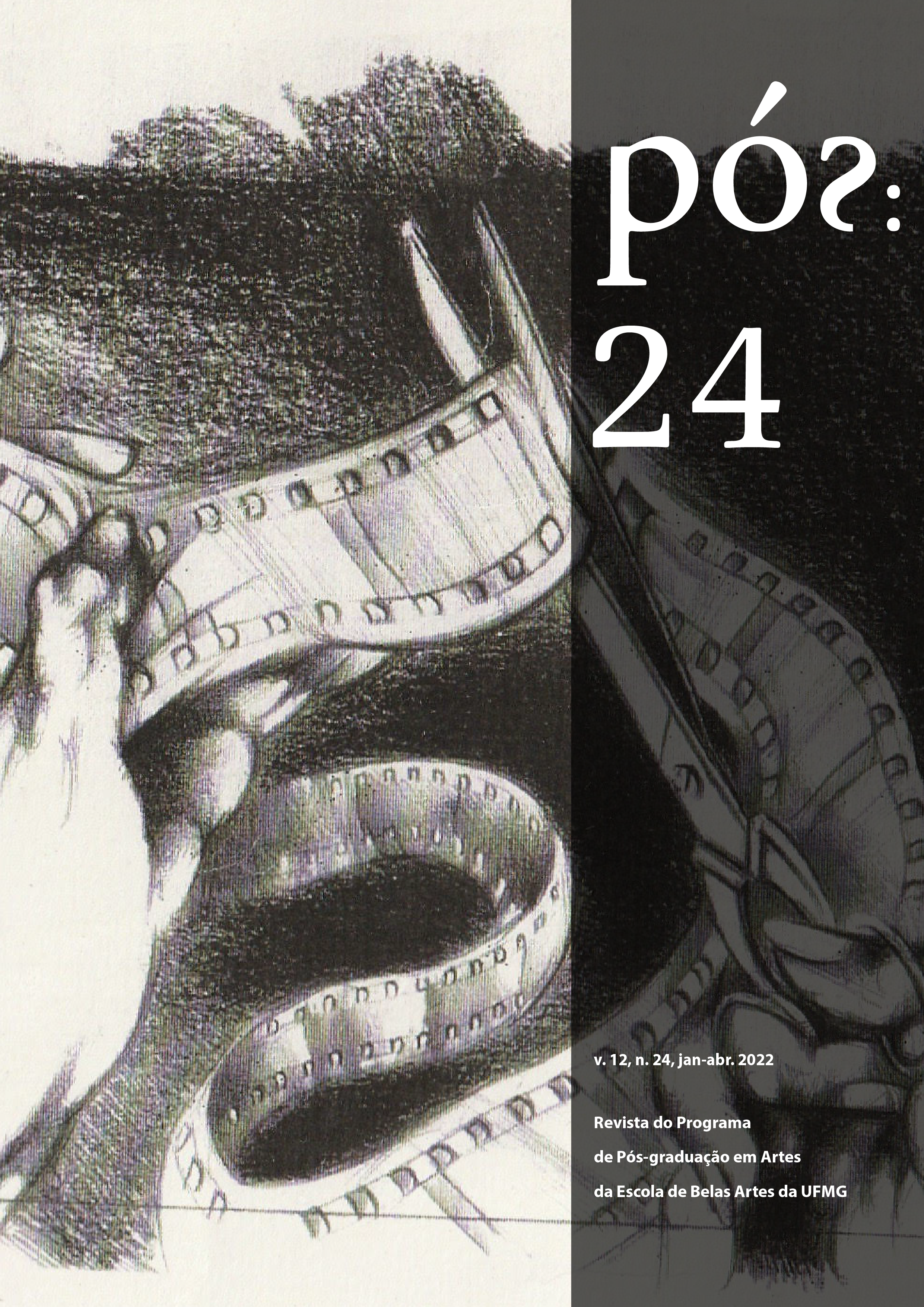The national and the narrative game
civilization and barbarism in Nueve Reinas (Argentina, 2000), directed by Fabián Bielinsky
DOI:
https://doi.org/10.35699/2237-5864.2022.35560Keywords:
Argentinian Cinema, Narration, Film analysis, NationAbstract
This paper aims to carry out an analysis of the Argentinian film Nueve Reinas (2000), directed by Fabián Bielinsky, relating elements of the narrative construction and the filmic space with possible ways of national construction. Based on Bordwell's (1995, 1996) theoretical and analytical assumptions for the observance of narrative processes, and the contribution of theorists and researchers, both in the field of social sciences and in the field of cinema, the productivity of the binomial civilization /barbarism for the cultural, social and political field of Argentina is observed. The result of the analysis is the identification of a series of strategies used by the director to expose his worldview regarding the imagined community of Argentina.
Downloads
References
AGUILAR, Gonzalo. Más allá del Pueblo: imágenes, indicios y políticas del cine. Mexico: Fondo de Cultura Económica, 2015.
AGUILAR, Gonzalo. Otros mundos: un ensayo sobre el nuevo cine argentino. Buenos Aires: Santiago Arcos Editor, 2010.
AMATRIAIN, Ignácio (org.). Una década de Nuevo Cine Argentino (1995-2005): Industria, crítica, formación, estéticas. Buenos Aires: Ediciones Ciccus, 2009.
ANDERMANN, Jens. Nuevo cine argentino. Buenos Aires: Paidós, 2015.
ANDERSON, Benedict. Comunidades imaginadas: reflexões sobre a origem e a expansão do nacionalismo. Lisboa: Edições 70, 1983.
BHABHA, Homi. Nación y narración: entre la ilusión de una identidad y las diferencias culturales. Buenos Aires: Siglo Veintiuno Editores, 2010.
BORDWELL, David. El significado del filme: Inferencia y retorica en la interpretación cinematográfica. Barcelona: Paidós, 1995.
BORDWELL, David. La narración en el cine de ficción. Barcelona: Paidós, 1996.
FEVRIER, Andrés. Nueve reinas, una película transparente. In: DOMINGUEZ, Juan Manuel (ed.). El fulgor: ideas sobre Fabián Bielinsky. Buenos Aires: 18º BAFICI, 2016. p. 13- 54.
GAUDREAULT, André; JOST François. A narrativa cinematográfica. Brasília: Editora UnB. 2009.
LUA de Papel [Paper moon]. Direção: Peter Bogdanovich. São Paulo: Paramount Films, 1973. 1 DVD (102 min.).
LUSNICH, Ana Laura (org.). Civilización y barbarie en el cine argentino y latinoamericano. Buenos Aires: Editorial Biblios, 2005.
NUEVE Reinas. Direção: Fabian Bielinsky. Buenos Aires: Patagonik Films, 2000. 1 DVD (109 min.).
O MAGNÍFICO Farsante [The Flim-Flam Man]. Direção: Irvin Kershner. São Paulo: 20Th. Century Fox,1967. 1 DVD (104 min).
OS VICIADOS [The panic at the Needle Park]. Direção: Jerry Schatzberg. São Paulo: Lume Filmes, 1971.1 DVD (110 min.).
PELLETTIERI, Osvaldo (org.). Historia del teatro argentino en Buenos Aires:La segunda modernidad (1949-1976). Buenos Aires: Galerna, 2003.
SARMIENTO, Domingos. F. Facundo, ou civilização e barbárie. São Paulo: Cosac Naify, 2010.
SVAMPA, Maristella. El dilema argentino: civilización o barbarie. De Sarmiento al revisionismo peronista. Buenos Aires: Editorial Aguilar, 2006.
SVAMPA, Maristella. Cambio de época: movimientos sociales y poder político. Buenos Aires: Siglo Veintiuno editores, 2012.
VISCONTI, Marcela. Cine y dinero: imaginarios ficcionales y sociales de la Argentina (1978-2000). Buenos Aires: Fundacción Ciccus, 2017.
WOLF, Sergio. Historia(s) del dinero. In: DOMINGUEZ, Juan Manuel (ed.). El fulgor: Ideas sobre FabiánBielinsky. Buenos Aires: 18º BAFICI, 2016.
Downloads
Published
Issue
Section
License
Copyright (c) 2022 Eduardo Dias Fonseca

This work is licensed under a Creative Commons Attribution-NonCommercial 4.0 International License.
Authors who publish in this journal agree to the following terms:
- Authors retain copyright and grant the journal the right of first publication, with the work simultaneously licensed under the a Creative Commons Attribution-NonCommercial 4.0 International License that permits sharing of the work with acknowledgement of authorship and initial publication in this journal;
- Authors are permitted to enter into additional contracts separately, for non-exclusive distribution of the version of the work published in this journal (e.g., the Creative Commons Attribution License).
- Authors are permitted and encouraged to publish and distribute their work online (e.g., in institutional repositories or on their home page) at any point before or during the editorial process, as this may generate productive changes as well as increase the impact and citation of the published work.
- It is the responsibility of the authors to obtain written permission to use in their articles materials protected by copyright law. Revista PÓS is not responsible for copyright breaches made by its contributors.












